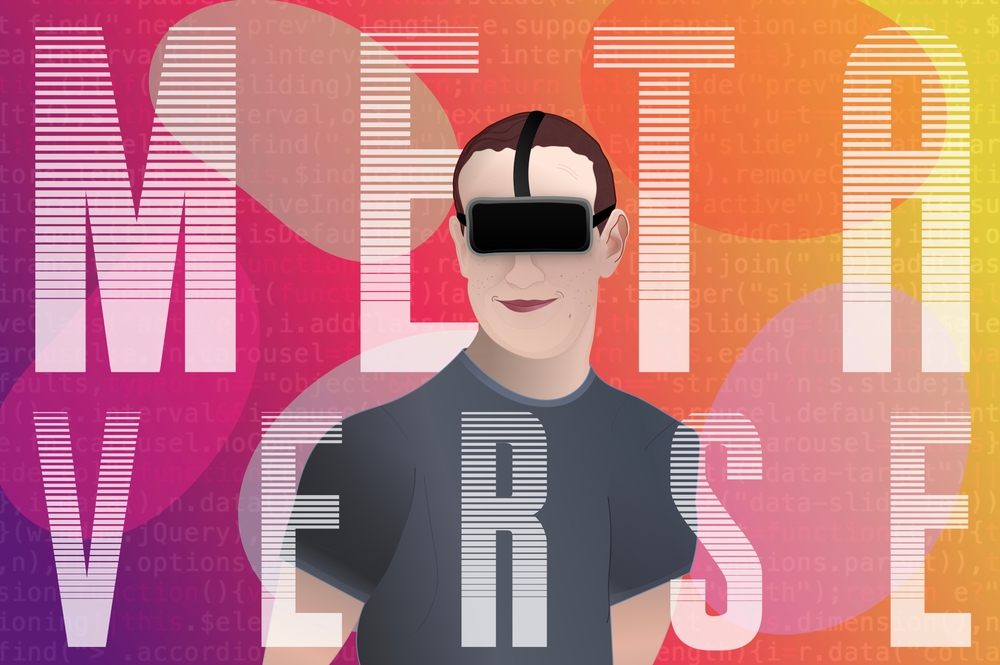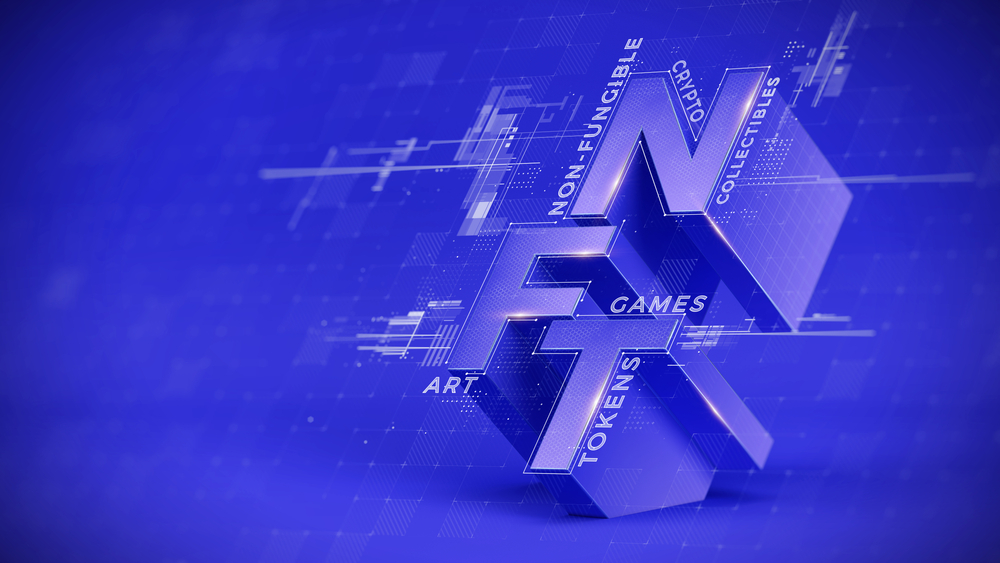Origins of the Metaverse
In 1992, Neal Stephenson introduced the concept of the 'metaverse' in his novel Snow Crash. The term refers to a virtually shared space that fuses physical reality with virtual worlds, in which users interface through avatars – a digital persona. Taken from the prefix 'meta', meaning beyond or transcending, the idea proposes the digitisation of our physical lives such that we work, learn, and socialise within a virtual reality.
This migration to cyberspaces was encouraged by the pandemic, which pushed people onto the internet for education, industry, art, and social activities. The metaverse promises to transform social media's 'likes' and Zoom meetings into interactive and immersive worlds that bring people together in a perceived virtual universe.

Technological advancements in the space of augmented reality (AR), virtual reality (VR), artificial intelligence (AI) and blockchain are driving the transition from our current usage of the internet to the metaverse. The metaverse will integrate all these technologies, blurring the lines seamlessly between the real and virtual worlds.
The cyber 'Big Bang' will usher in a new social system for interaction that can be designed from the ground up. The metaverse finds itself in the early stages of development and so faces questions surrounding governance, incentives, design infrastructure and regulation. This could prove a vital period in determining our future, especially when keeping in mind John Culkin's adage that 'we shape our tools and thereafter they shape us'. Put simply, we should ask ourselves: What world do we want to live in and how can we build it?
Meta: Facebook's Bet on the Metaverse
Programmers, investors, CEOs, futurists, and philosophers have all provided commentary on their vision for the metaverse. Increasing interest is building across the board, given the possibilities to develop new; social, entertainment, economic, and political systems from scratch through coding. Of course, potential monetisation of the metaverse has attracted corporate attention, especially from the world's tech giants which see opportunity in the technology and Facebook's rebrand to Meta is proof.
CEO Mark Zuckerberg outlined the social media company’s commitment toward developing a 'metaverse company' following its launch of VR platform Horizon and a $10 billion investment in Reality Labs — an AR and VR design hub. Amazon, Alphabet (Google), and Microsoft have all expressed interest in building the metaverse and, given the irretrievable costs involved in developing a metaverse system, these companies are perhaps the best placed to actualise the digital universe.

Observing the dominance of big tech in the world, it is not hard to identify the inherent flaws in our current and heavily-monopolised, centralised systems. Notably,a small group of actors (those tech giants mentioned above for example) have total control over who uses the system, how it distributes wealth, and how users engage and interact with the system. Moreover, users’ behaviours are tracked and their data shared and held in possession by that small group of actors.
While centralised systems have a place, the thought of a small circle of actors controlling the entirety of the metaverse, where many societal systems could migrate to, is uncomfortable in a time when personal privacy is already eroding.
For this reason, decentralised technologies like blockchain have been proposed for integration into the metaverse to ensure transparency, individual sovereignty and (fairer) distribution of wealth. These checks and balances, provide participants in the metaverse with the expectation of just treatment in respect of the virtual world’s economic, governance, security, and privacy systems and structures.
Where does Blockchain fit in?
Blockchain is a fundamental building block of the metaverse that can be used to ensure its security and operation. Aside from its obvious application in digital currencies, blockchain technology is used for storing data in a decentralised fashion, whereby no one party has superior control over or access to the data.
This would suit the metaverse given the huge volume of data it would generate and the need for data security in such an immersive space. However, decentralised storage would represent a step change for big corporations, which currently manage data with self-owned, centralised systems.
The upshot is corporations have unlimited access to data, which can be monetised and not necessarily with users explicit consent. A blockchain’s distributed data-management system puts users back in control of their own data so they can see how it’s used and decide who can access it.
Blockchain then guarantees the security of shared data and introduces smart contract and access control to track the data-accessing behaviour of all users.
Perhaps the widest and most profound application of blockchain technology in the metaverse is the way it will bridge and connect different worlds.
An open metaverse requires a public and distributed infrastructure where users can jump between privately created virtual worlds and seamlessly move throughout the metaverse's multiplicity of platforms — the technical term for this is interoperability.
It is useful then to think of the metaverse not as a localised virtual realm, but the fabric that connects different realms — the technological space between places that unifies the entire system.
Mini-metaverses such as Decentraland have already leveraged blockchain technology on the Ethereum network and allows users to buy land or non-fungible tokens (NFTs). Users can then develop 'plots' where the core content has emerged as the exhibition of digital art.

Blockchain technology is invaluable in creating a unified, shared and collective virtual space. Yet, the advent of the metaverse as an interactive, immersive, and persistent 3D world still faces significant challenges. With the progression and refinement of blockchain and other technologies, we could see the metaverse play a bigger role in everyday life.
While this may be a daunting prospect for some, Jaron Lanier — the founder of the field of virtual reality — has said that the greatest value of simulated realities is that they enhance our appreciation of the richness and complexity of the physical world.
The metaverse is not a replacement for the real world, but will co-evolve with it. Utilising blockchain technology, the metaverse presents new habitats for humanity where users can create their own meaning, lead new lives and enrich the virtual world while doing so.
Check out part 2 of our metaverse deep dive here: Major Players in The Metaverse
Disclaimer: This assessment does not consider your personal circumstances, and should not be construed as financial, legal or investment advice. These thoughts are ours only and should only be taken as educational by the reader. Under no circumstances do we make recommendation or assurance towards the views expressed in the blog-post. The Company disclaims all duties and liabilities, including liability for negligence, for any loss or damage which is suffered or incurred by any person acting on any information provided.
.png?u=https%3A%2F%2Fimages.ctfassets.net%2F4ua9vnmkuhzj%2F1zNRsIeweJesyMCND3fJkK%2F6b37dbce46e92fc1c51ce41fcebc6117%2FUntitled_design__12_.png&a=w%3D439%26h%3D250%26fm%3Dpng%26q%3D80&cd=2023-05-08T07%3A06%3A45.484Z)
.png?u=https%3A%2F%2Fimages.ctfassets.net%2F4ua9vnmkuhzj%2F2cOywdhYZ4EhUXb2JdAbru%2Fd144a2c5f45d3b90fa237d1698899a5c%2FUntitled_design__15_.png&a=w%3D439%26h%3D250%26fm%3Dpng%26q%3D80&cd=2023-05-09T05%3A29%3A07.895Z)
.png?u=https%3A%2F%2Fimages.ctfassets.net%2F4ua9vnmkuhzj%2F3spEQl01aQfHVCQ7XGfue1%2F0872b77f75dde50c04bc1203ac893485%2FUntitled_design__13_.png&a=w%3D439%26h%3D250%26fm%3Dpng%26q%3D80&cd=2023-05-08T07%3A27%3A00.249Z)
